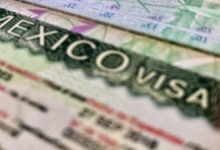Remote Work, Thai Style: The Rise of Thailand’s Digital Nomad Visa

Remote work is no longer a trend—it’s a lifestyle. And as millions of professionals trade office cubicles for café tables and boardrooms for beachfronts, countries across the globe are stepping up to welcome them. Among the most exciting destinations on the map? Thailand.
Long a favorite for backpackers, retirees, and adventurous entrepreneurs, Thailand is now embracing a new wave of global workers with its Digital Nomad Visa, officially part of the Long-Term Resident (LTR) Visa program. In this article, we’ll explore the rise of remote work culture in Thailand, what makes it such a magnet for nomads, and how the new visa is changing the game.
Why Thailand Is Built for Remote Work
Thailand has always had the perfect ingredients for the digital nomad lifestyle—long before governments started tailoring visas for them.
Here’s why it continues to stand out:
-
Low cost of living: Affordable rent, food, and healthcare let you stretch your income further.
-
Vibrant expat communities: From Bangkok to Chiang Mai to the islands, you’ll find a ready-made network of creatives, coders, writers, and solopreneurs.
-
Top-notch infrastructure: High-speed internet, modern coworking spaces, and a growing tech ecosystem support remote work easily.
-
Incredible lifestyle: Temples, national parks, tropical beaches, night markets, and some of the best food in the world.
So what’s new? Legality. Until recently, many digital nomads in Thailand lived in a gray area—staying on tourist visas, hopping borders, or enrolling in courses to extend their stay. The Digital Nomad Visa changes that.
The Digital Nomad Visa, Explained
Launched in 2022, Thailand’s Long-Term Resident Visa includes a specific track for remote workers: the “Work-from-Thailand Professional” category.
Unlike tourist or education visas, this one offers:
-
✅ 5 years of stay (renewable for another 5 years)
-
✅ Digital work permit for legal employment from abroad
-
✅ Multiple re-entries
-
✅ No 90-day check-ins—just one annual report
-
✅ Tax incentives, including a 17% flat rate (if applicable)
-
✅ The option to bring your spouse and dependents
This visa isn’t just for casual travelers—it’s built for serious professionals who want stability, flexibility, and long-term access to one of Asia’s most dynamic countries.
Who Is Eligible?
This visa is designed for remote workers employed by or contracted to foreign companies. You don’t need to be a business owner, but you do need to meet some specific criteria:
✅ Minimum Requirements:
-
Annual income of USD $80,000 for the past 2 years.
-
OR: If you earn between $40,000 and $79,999 per year, you’ll also need a master’s degree, intellectual property, or 5+ years of experience.
-
-
Remote work for a foreign company that has been in operation for at least 3 years.
-
5 years of work experience in your field (within the past 10 years).
-
Health insurance with at least $50,000 coverage valid in Thailand.
The Rise of Legal Nomad Life in Thailand
The introduction of this visa marks a shift in how Thailand views digital nomads—not just as travelers, but as economic contributors. And the timing couldn’t be better.
In the post-COVID world, millions of professionals have gone permanently remote. Companies are open to global teams, and workers are free to choose countries that offer the best quality of life. Thailand wants to be on that list—and with this visa, it’s making a strong case.
The LTR visa is not only a response to changing work habits but a strategic move to attract talent, innovation, and foreign income into the Thai economy. It offers stability and security for nomads who used to play a constant game of visa extensions.
The Application Process
Getting the visa involves a few steps but is entirely manageable:
1. Apply Online
Visit the official LTR Visa Portal, create an account, and choose the “Work-from-Thailand Professional” category.
2. Prepare Documents
You’ll need to submit:
-
Passport
-
Proof of employment (contract, company registration)
-
Bank statements or tax returns showing income
-
Resume/CV with 5+ years of experience
-
Health insurance policy
-
Degree or IP proof if applying under the lower income tier
3. BOI Review
The Thai Board of Investment reviews your application. This takes 4–6 weeks.
4. Visa Issuance
Once approved, you’ll receive a visa endorsement letter, which you take to a Thai embassy or immigration office to get your LTR visa.
5. Work Permit
Apply for your digital work permit through the One Stop Service Center upon arrival.
Where to Live: Nomad Hotspots in Thailand
Once approved, the real fun begins—choosing your base. Each Thai region offers something different for digital nomads:
📍 Chiang Mai
-
Quiet, creative, and affordable. A global hub for remote workers.
-
Best for writers, coders, artists, and slow-living fans.
📍 Bangkok
-
Modern, fast, and energetic. World-class coworking and endless nightlife.
-
Best for entrepreneurs, marketers, and consultants.
📍 Phuket / Koh Phangan / Krabi
-
Work from paradise, then dive into the ocean. Reliable internet on many islands.
-
Best for wellness coaches, creatives, and lifestyle freelancers.
📍 Hua Hin / Pai
-
Quieter, peaceful locations with growing remote work communities.
-
Best for those who want tranquility and a slower pace.
Tips for Thriving as a Digital Nomad in Thailand
-
Join communities: Check out Facebook groups, local meetups, and coworking hubs.
-
Get a Thai SIM card: Cheap and great for tethering in case of Wi-Fi issues.
-
Track visa requirements: Stay compliant, especially for renewals and taxes.
-
Consider Thai insurance: May be more cost-effective than international plans.
-
Explore often: Domestic travel is cheap and easy—take advantage!
Final Thoughts: Why Now Is the Time
The rise of Thailand’s Digital Nomad Visa signals a new era: one where countries adapt to global work trends, and professionals have the freedom to live somewhere that supports both productivity and peace.
If you’re a remote worker looking to build a life where each day starts with a coconut smoothie and ends with a sunset over the sea—or a rooftop dinner in Bangkok—Thailand is ready for you. And now, thanks to the LTR visa, you can finally make it official.








